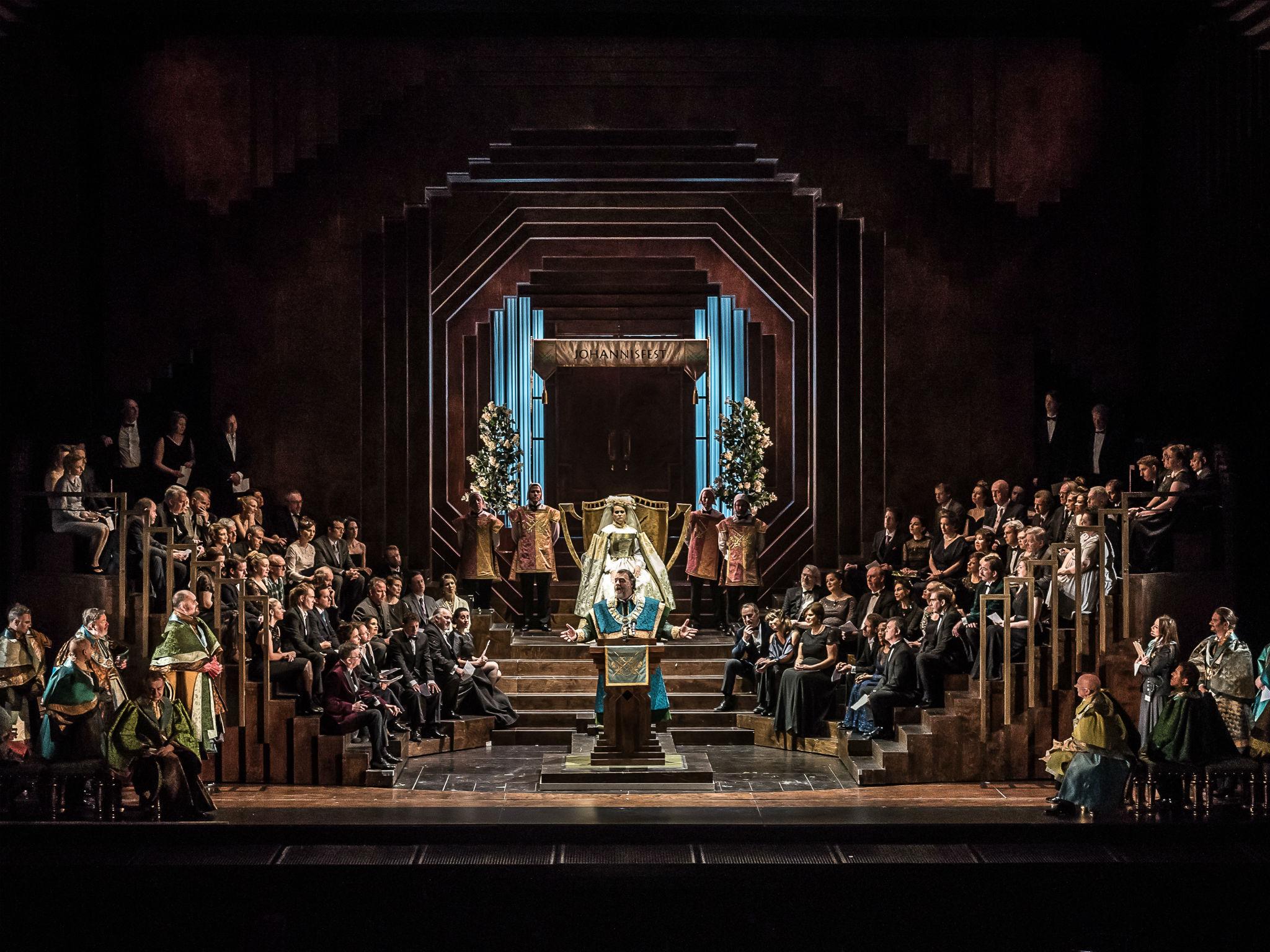Die Meistersinger von Nürnberg, Royal Opera House, London, review: It sadly turned out to be more of a squawk than a swansong
Kasper Holten's farewell production of 'Die Meistersinger von Nürnberg' at the Royal Opera House did not work well with the action transposed to a 1920s gentleman's club

Your support helps us to tell the story
From reproductive rights to climate change to Big Tech, The Independent is on the ground when the story is developing. Whether it's investigating the financials of Elon Musk's pro-Trump PAC or producing our latest documentary, 'The A Word', which shines a light on the American women fighting for reproductive rights, we know how important it is to parse out the facts from the messaging.
At such a critical moment in US history, we need reporters on the ground. Your donation allows us to keep sending journalists to speak to both sides of the story.
The Independent is trusted by Americans across the entire political spectrum. And unlike many other quality news outlets, we choose not to lock Americans out of our reporting and analysis with paywalls. We believe quality journalism should be available to everyone, paid for by those who can afford it.
Your support makes all the difference.Kasper Holten’s farewell production of Die Meistersinger von Nürnberg sadly turned out to be more of a squawk than a swansong – a shame especially in the wake of truly excellent productions by David McVicar at Gyndebourne and Richard Jones at ENO. It wasn’t his final take on art and innovation as billed.
With towering elder statesman Bryn Terfel as the poet-cobbler Hans Sachs, Gwyn Hughes Jones as Walther and Johannes Martin Kränzle as Beckmesser (treading a judicious line between comedy and pathos), these are all seasoned Wagnerians well accustomed to these very roles. But Holten’s decision to transpose the action to a Twenties gentlemen’s club (privilege, hidebound tradition etc, with top-up dollop of freemasonry) which may initially have seemed promising swiftly leads to disaster, bringing with it unfathomable questions and a dislocation that makes nonsense of Wagner’s tight narrative logic. Key plot points are entirely lost in a blur of competing detail and Mia Stensgaad’s rotating sets.
There is, to be fair, nuanced interplay between American soprano Rachel Willis-Sørensen’s Eva and Terfel’s Sachs, with Allan Clayton’s ever-engaging tenor as the apprentice David. In the pit Antonio Pappano diligently points up Wagner’s musical argument: how the heavily swagged orchestrations of the overture will ultimately yield to something more adventurous and soaringly impassioned.
Join our commenting forum
Join thought-provoking conversations, follow other Independent readers and see their replies
Comments